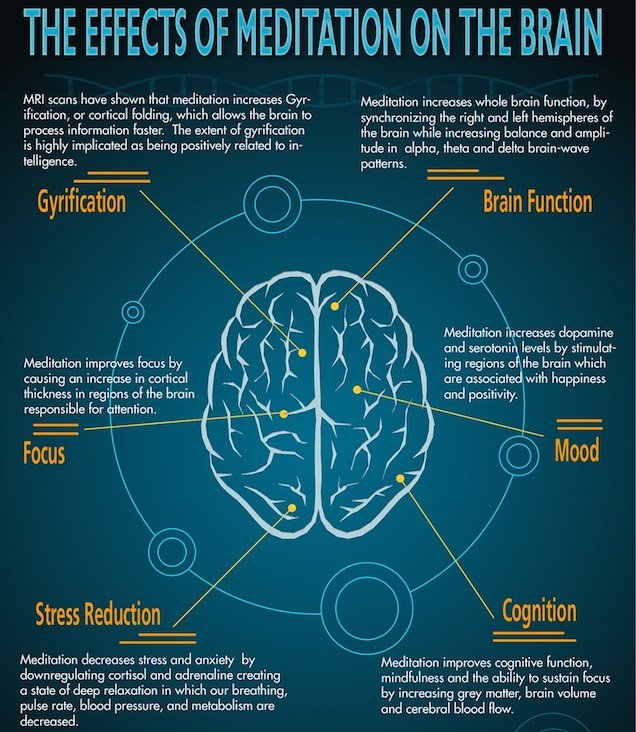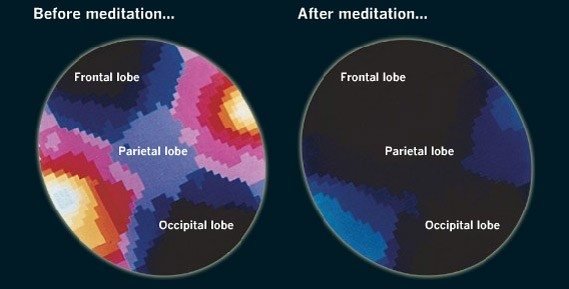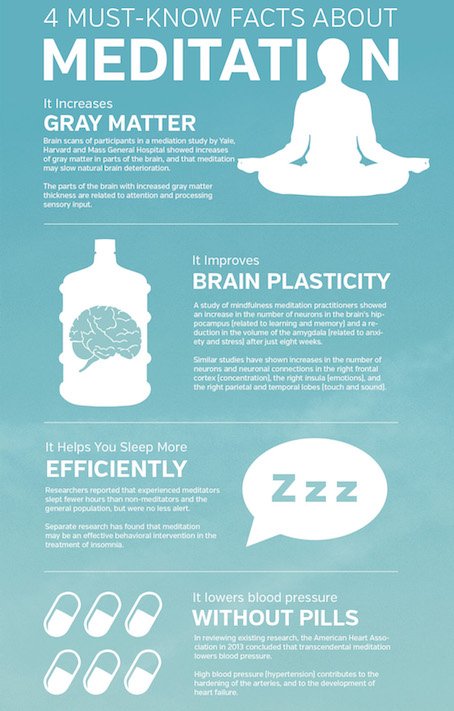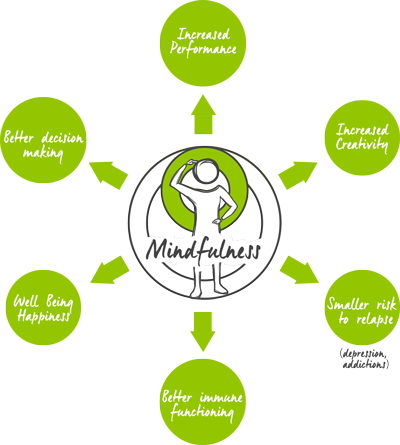
Meditation is a very fascinating practice with countless benefits for body and mind.
One of my first Steemit posts was actually dedicated to the art of meditation!
We all know that meditation can help us focus, it can calm us down and release tension - you sit down comfortably, focus on your breathing, and let go of all of your thoughts.
But did you know that meditation literally changes your brain structure ?!

Meditation reduces activity in the "Me" Center (Less Anxiety)
The Medial prefrontal cortex, also nicknamed the "Me" center, is a part of the brain that processes information related to you personally. This could be when you are reflecting on yourself, daydreaming, thinking about your future or past, engaging in social situations etc.
When you experience something scary or upsetting, your Me center is being triggered, making you feel anxious and stressed.
Recent studies conducted at Yale University have shown that activity from this area of the brain was decreased in people who meditate regularly.
Meditation helps to weaken the neural connection with the me-center, so that you will feel less anxious when you're in a scary situation.
Instead, the connection between our assessment center (the part of our brain that manages reasonable thinking) and our bodily fears is strengthened - meaning that it will be easier to come to a rational conclusion rather than an emotional decision if we're in a frightening situation.

Meditation slows down the aging brain and increases grey matter
A study from UCLA from last year has shown that people who meditated long-term had better-preserved brains as they aged.
The participants who had been meditating for 20 years showed increased grey matter compared to those who never meditated.
Study author Florian Kurth stated that "(...) what we actually observed was a widespread effect of meditation that encompassed regions throughout the entire brain."
Faster Learning / Better Focus / Ability to ignore distractions
Everybody who meditates knows that a quiet environment without disturbances is the key to a good meditation session.
Studies have shown that people who meditate regularly were less startled by sudden distractions, and they could focus more easily in an environment full of disturbances - because they simply **blocked them out. **
Also, people who recently meditated were able to get into a deeper state of focus quicker - which in turn increased their learning ability and -speed.

Different changes in key areas of the brain
In 2011, a research team from Harvard University conducted a study where the participants joined an 8-week program of Mindfulness-Based Stress Reduction (MBSR).
The results were incredible, they showed changes in different key areas for the brain:
- Increase of cortical thickness of the hippocampus (which manages learning and memory)
- Increase of cortical thickness in areas of the brain that control self-referential processing and emotion regulation
- Decrease in brain cell volume of the amygdala (which is responsible for negative emotions like stress, anxiety and fear)
Other benefits of meditation
Of course, meditation has countless other benefits as well - for example decreased blood pressure, improved memory, increased empathy, decreased fatigue, improved attention span and concentration.

All-in-all, meditation is a practice that offers countless benefits, so you should give it a try!
It's so easy to do: you need no knowledge and no equipment, all you need is a quiet place where you can sit comfortably.
Many people think that meditation is hard, but that's often just because they're not patient enough! In our world that is so fast-paced, most people can't even sit down for 2 minutes without doing anything.
Don't give up too quickly, focus on your breathing, close your eyes, and try to stay in this relaxed position for at least 10 minutes - you will soon get into it!
Images: 1, 2, 3, 4, 5, Sources: 1, 2, 3, 4, 5, 6
- Instagram -

© Sirwinchester
